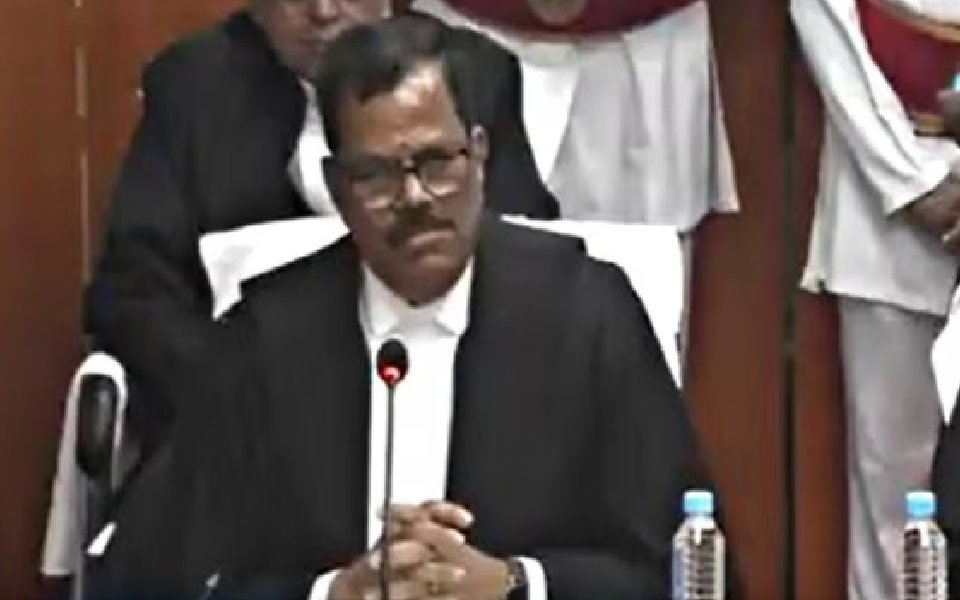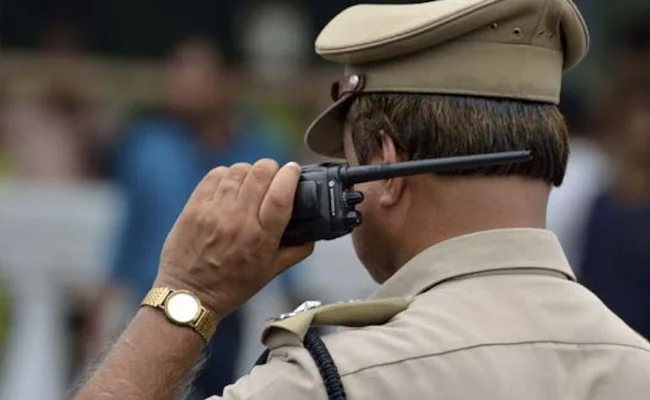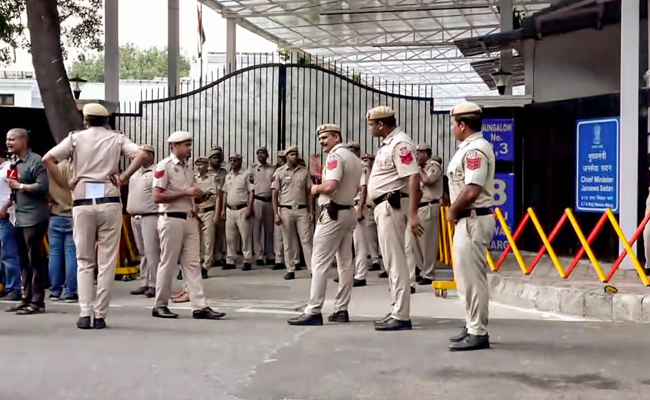Indore, May 20 (PTI): "God does not forgive nor forget," were the words echoed with profound bitterness by Justice Duppala Venkata Ramana, a Judge of the High Court of Madhya Pradesh, as he prepared to demit office on Tuesday.
What is traditionally a moment of reflection and gratitude turned into a critique of a system that, in his eyes, had inflicted deep and unwarranted personal hardship.
"It was a remarkable period of my life," Justice Ramana began, his voice steady, yet laden with pain.
"I was transferred from the Andhra Pradesh High Court to the Madhya Pradesh High Court without any explanation.
"I was asked for options. I opted for the state of Karnataka, so that my wife could receive better treatment," he said, referring to his wife's battle with PNES (Paroxysmal Non-Epileptic Seizures) and severe brain complications following the COVID-19 pandemic.
But his plea—a husband’s earnest request born from compassion—fell on deaf ears.
The Supreme Court, he said, disregarded his choice, and what followed was a relentless and ultimately futile struggle for a compassionate hearing.
He had submitted formal representations to the Supreme Court on July 19, 2024, and again on August 28, 2024, reiterating the severity of his wife’s medical condition.
"But the representation was neither considered nor rejected," he lamented.
Another appeal during the tenure of the previous Chief Justice also went unanswered.
"I received no response. A judge like me expects at least a humane consideration. I was disheartened and deeply pained," he added.
He acknowledged that current Chief Justice B R Gavai might have been more sympathetic—but it came "too late in the day as I am demitting office."
Justice Ramana expressed his belief that the transfer was executed with "ill intention to harass me."
"Anyway, my transfer order seems to have been issued with ill-intention and to harass me. I suffered as I was transferred from my home state for obvious reasons," he stated, a veiled reference to unseen forces.
"I am happy to satisfy their ego. Now they are retired. God does not forgive nor forget. They will also suffer in another mode," he added.
Despite the bitterness, his speech was not without dignity and resilience.
A first-generation lawyer, Justice Ramana reflected on his life: "I bore witness to the resilience of human existence, the power of human struggle, dignity in poverty, and most importantly, unshakable hope and faith."
"These ordinary, everyday experiences" taught him that "except hard work, there is no shortcut to success".
His career, he acknowledged, was marked by "struggles and bitter experiences" that eventually led him to "diversify my activities."
From the moment he joined the judicial service, he was subjected to "conspiratorial scrutiny."
"My family has suffered in silence,” he shared, "But ultimately, the truth will always prevail."
He invoked the words of Martin Luther King Jr.: "The ultimate measure of a man is not where he stands in moments of comfort and convenience, but where he stands at times of challenge and controversy."
Justice Ramana stressed that every achievement in his life came after enduring setbacks and hardships.
He embraced these challenges, believing that "every failure carries a seed of equivalent advantage."
"I never claimed to be a scholarly judge or a great judge. But I always believed that the ultimate purpose of the justice delivery system is to provide justice to the common man".
नंबर सबका आएगा 😎
— सनातनी हिन्दू राकेश (मोदी का परिवार) (@Modified_Hindu9) May 20, 2025
"उन्हें भुगतना पड़ेगा": जस्टिस डीवी रमना ने दावा किया कि आंध्र से MP हाई कोर्ट में ट्रांसफर उत्पीड़न था#MadhyaPradeshHighCourt #AndhraPradeshHighCourt #JudgesTransfer #BarandBench pic.twitter.com/hHS4EaPlnk
Let the Truth be known. If you read VB and like VB, please be a VB Supporter and Help us deliver the Truth to one and all.
Bengaluru (PTI): Four engineering students were allegedly held captive and robbed of Rs 1.5 lakh while returning after having biryani at a popular food joint on the outskirts of the city, police said on Tuesday.
The incident occurred on December 21 when the students were returning on two-wheelers from an early morning trip to an eatery in Hoskote, they said.
One of the accused has been arrested, and efforts are on to nab the remaining suspects, police said.
According to the police, the students are from a private college in Bagalur. While returning from the eatery, they were allegedly intercepted near a toll plaza by a gang of men, who thrashed them and took away their mobile phones and two-wheelers.
ALSO READ: Delhi Police tightens security in city, near borders ahead of year-end festivities
The gang allegedly took the students to a shed near Medahalli, held them captive, and robbed them. The assailants allegedly took Rs 40,000 in cash and transferred Rs 1.10 lakh from the victims’ bank accounts, a senior police officer said.
However, the students later got their vehicles back, he said.
Based on a complaint lodged by one of the students, a case has been registered at Avalahalli police station under sections related to kidnapping and dacoity. Further investigation is underway, police said.





